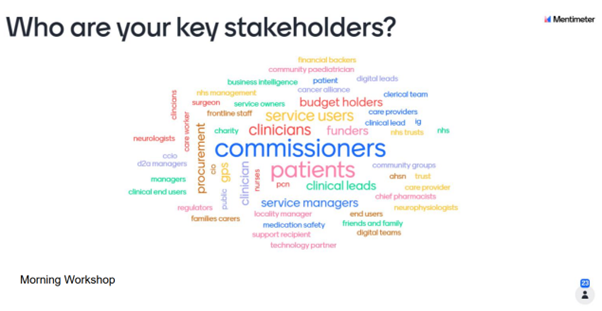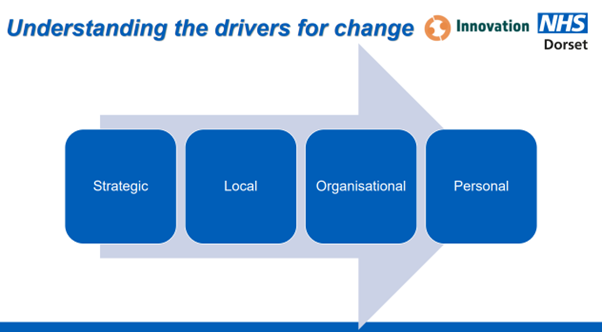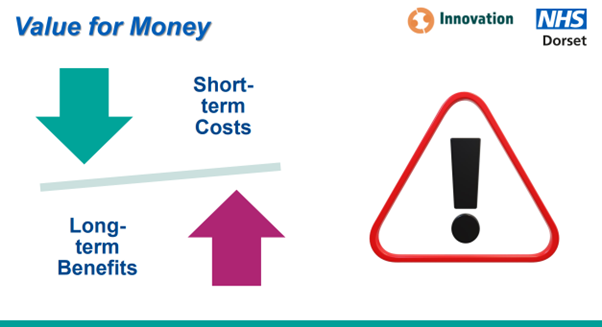In March, we attended the ‘Bridging the Gap’ conference, a business-led event to support health and care innovators navigate the NHS, organised by four Academic Health Science Networks: South West AHSN, Kent Surrey Sussex AHSN, West of England AHSN, and Wessex AHSN. The theme for the event was ‘Integrated Care Systems: What Innovators Need to Know’ and offers health and care businesses an opportunity to build understanding of how integrated care systems (ICS) in England operate. It was great opportunity for us to attend and to talk about the work of the Dorset Innovation Hub and NHS Dorset’s inward investment team.
Jon Siddall, Chief Executive of South West AHSN, in his opening remarks talked about the importance of ‘People, Place, and Partnership’, when implementing innovation and change within ICSs. This resonated with us and perfectly framed our workshop sessions held twice through the event on ‘Developing a compelling business case’.
People
One of the initial questions and discussions that we had with our workshop attendees was about the identification and engagement of stakeholders. How integral it is for any innovative solution, to consider the variety of stakeholders and how they can influence, support, and in some cases hinder progress. How stakeholders need to be considered at the outset and reviewed over time and just how many stakeholders there can be! We used Mentimeter to capture stakeholders that the attendees identified, unsurprisingly commissioners, patients / service users, and clinicians were among the most answers.

Place
Framing any innovation project/ product business case around the place you are looking to embed the innovation is vital. We talked about the importance of drivers for change, whether these are driven nationally or locally, such as a change to a strategy or mandate, or at an organisation level, such as a new operational plan. You need to understand whether people are ready to implement an innovation, and whether they have the authority or backing of these drivers. Taking into consideration what people’s wants and needs in one place, might not easily be replicated in another.

Partnership
Building effective partnerships will increase an innovative projects likelihood of success. Strong partnerships will help to articulate the strengths and impacts of an innovation solution or change (benefits) and identify key challenges to success (risks). Both aspects, alongside costs, are carefully considered and evaluated to understand the value for money of an investment into innovation.

Without considering people, place, and partnership it is very difficult to successfully embed innovation within ICSs.
Future training available
If you would like to attend ‘Preparing a Business Case’, please book on to the training on 10 October via Eventbrite.
Katherine Misun
Inward Investment Manager NHS Dorset

